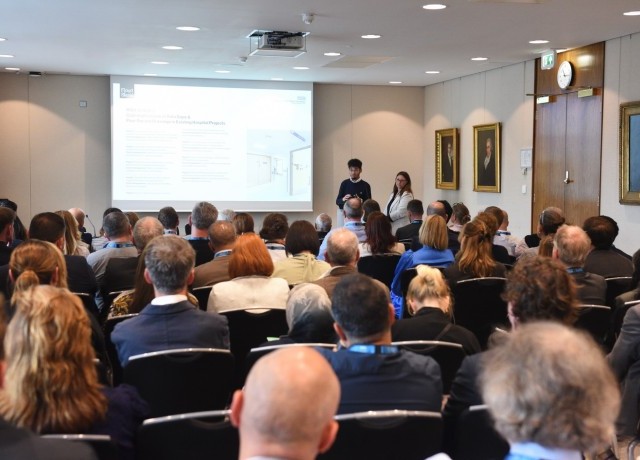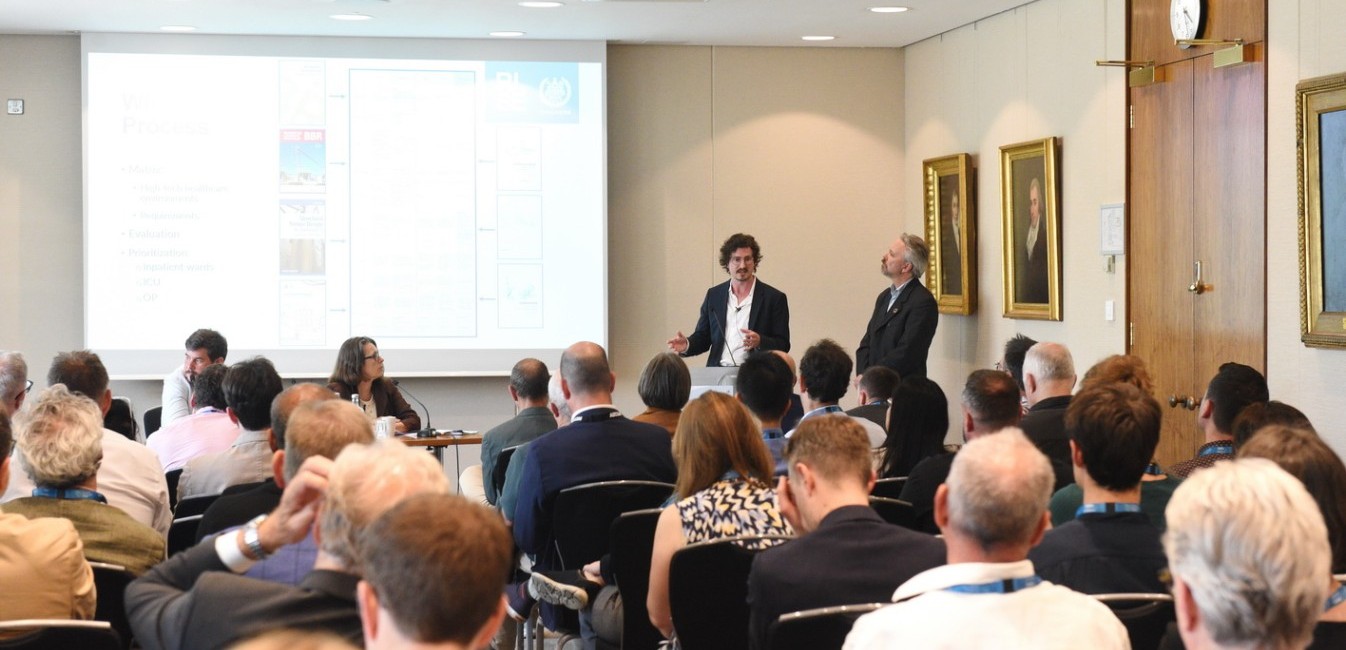
Vision statement
Agile not fragile:
Designing for resilience, renewal and regeneration
We live in a state of instability not seen since the mid-20th century and multiple challenges threaten to throw whole health systems off balance. But out of risk comes opportunity, with the chance to build a more agile and resilient health ecosystem.
The only constant is change, Heraclitus reflected some two millennia ago. As much as any area of modern life, healthcare today exhibits this maxim – only supercharged. Now it also seems that the only certainty is uncertainty.
As well as increasing political, economic and climatic turbulence, the rapidity of technological change itself is making the future harder to foresee and the present trickier to navigate. How can we plan for the future when so much appears in flux?
The Covid pandemic seemed to catalyse a long-term shift towards telemedicine, saving time for both patient and health system. However, this trend has not been sustained and, indeed, it has partially reversed.To sustain policies relaxed in emergencies requires adjustments in legal and financial infrastructure, while there are concerns, too, about data protection and integration with health records.
AI, medical technology, and life sciences are revolutionising healthcare by enhancing diagnostics, personalising treatments, boosting efficiency, and empowering patients. These innovations promise to shift healthcare from a reactive model to a more proactive, predictive, and patient- centred system. However, digital technologies also give rise to novel risks like cyber-attack, accidental data loss or corruption, and software obsolescence.To add to which are unintended consequences, such as the compromise of privacy and mental health impacts of social media.
Workforce shortages afflict every global healthcare system, albeit in different ways. Digital advancements may help alleviate their impact.A McKinsey report suggests 30% of nurses’ time could be saved by automating routine and bureaucratic tasks. But it is also important to create supportive environments that promote staff wellbeing, improve work performance, enhance retention, and attract more people to healthcare.
Time waits for no one
That leads to a key issue for physical design: the huge division between the time it takes to build a hospital and the rapid changes in practice and technology.
Strategies to compress this time gap include modular or prefabricated construction; standardised designs; and applying AI, virtual and augmented reality for better planning and error reduction – but ensuring resilience to change through maximising adaptability is vital.
Adaptability and resilience gain even more importance through the lens of neighbourhood health. Delivering health and wellbeing services through greater collaboration of multiple interconnected partners – such as the NHS, local government, voluntary and community bodies, schools, housing providers, and residents themselves – can help reduce over-reliance on the health service, while also addressing the social determinants of health.
Overarching all of the above is climate change, which poses direct risks, such as heatwaves, drought, flooding and novel infections. Strengthening the climate resilience of healthcare infrastructure requires trying to anticipate future scenarios, and includes flexible space to provide surge capacity.The need to reduce carbon emissions also has indirect consequences, such as a presumption towards repurposing existing buildings and infrastructure and away from building anew; sourcing low-emission products; and retrofitting to improve energy efficiency – all of which present opportunities for innovation.
Change brings opportunity
The inevitability of change and the fog of uncertainty impact on all disciplines brought together by the Congress.They challenge us to develop systems, practices, technologies and buildings that are resilient and agile. Fortunately, some of the agents of rapid change, like AI and medical technology, also provide the opportunities for increasing resilience and agility.
A useful thought experiment is to ask what will not change in a defined foresight horizon. It follows that all else might change and allows us to conceive scenarios that make the issues more tractable. Papers are invited on a wide interpretation of the theme: from resilience through climate adaptation, to digital response to mitigate disruption, to adapting to limited workforce resources.Above all, how do we design in a way that enables health ecosystems to be agile, not fragile, in an uncertain future?

Preliminary Programme
The Call for Papers has now closed, sign up to our newsletters to be notified when the Preliminary Programme is launched in February.
2026 Themes
From hospital to community, and treatment to prevention; ecosystem approaches to integrating care and fostering healthy communities
New service, funding and asset models that promote equity, quality improvement and strengthen health system resilience
Adaptive and humanistic environments and spaces to support clinical service planning strategies
Whole system-level adoption of digital health, AI, personalised medicine and smart hospital innovations
Applying circular economy principles and net–zero carbon strategies to services and infrastructure
Design at the human scale to promote wellbeing, identity and dignity, support recovery, and empower patients and staff
Integrating specialist services and infrastructure, including mental health services, cancer care, women and children, and rehabilitation
Provisional Timetable
Chaired and directed by




